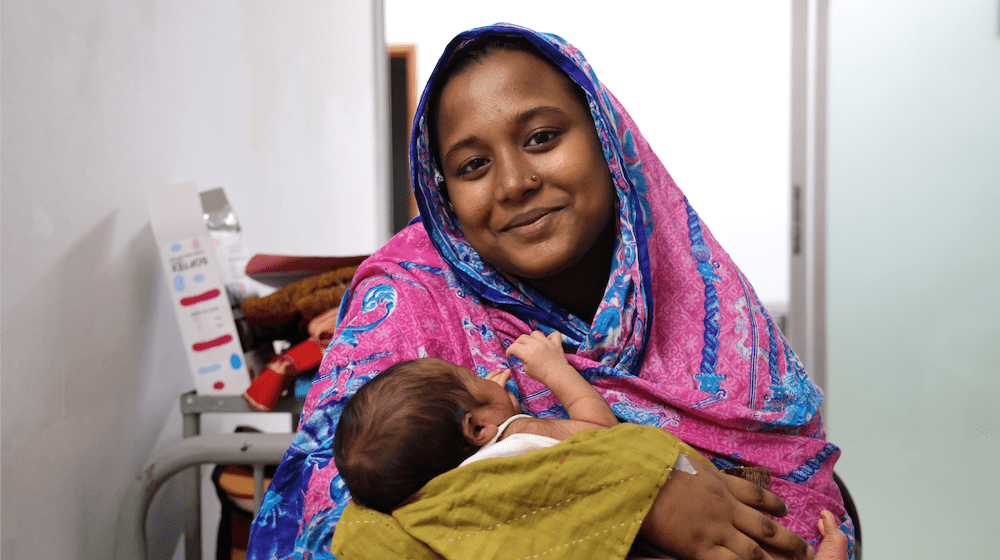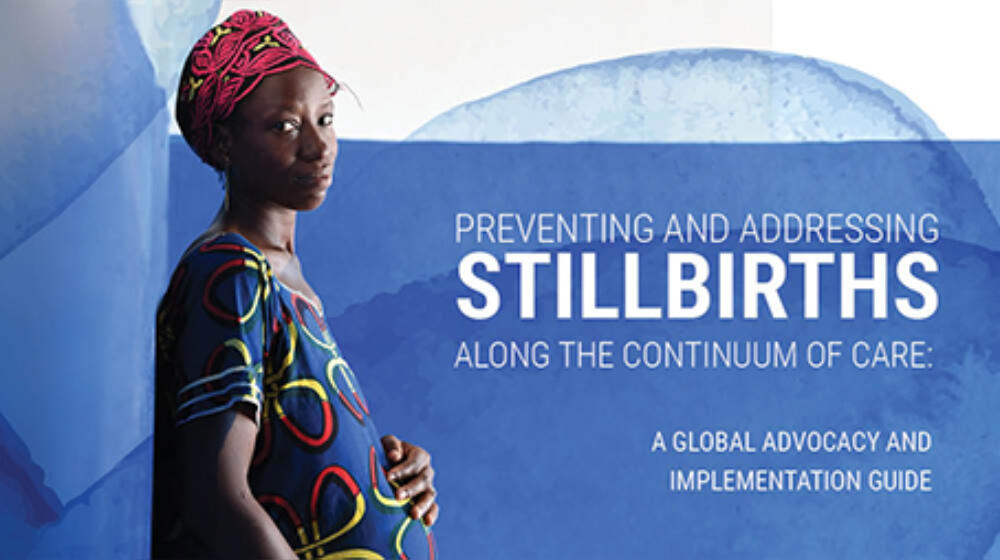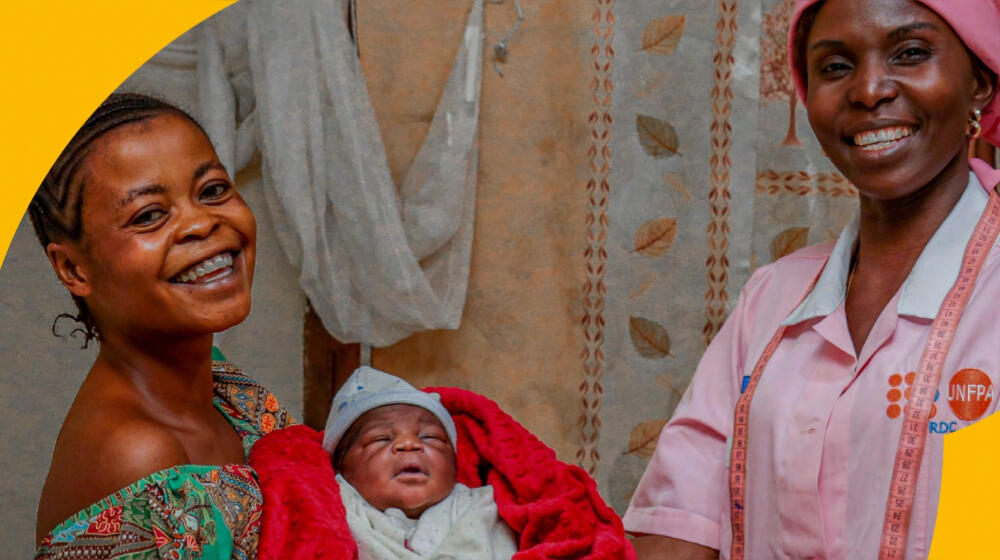The Maternal and Newborn Health Thematic Fund: A catalyst for change
The Maternal and Newborn Health Thematic Fund is UNFPA’s flagship programme to improve maternal and newborn health and well-being, providing catalytic support to ensure that every woman, adolescent girl and newborn has equitable and accountable access to quality sexual, reproductive, maternal and newborn health and rights.
The fund has four areas of intervention critical to ending preventable maternal deaths: midwifery, emergency obstetric and newborn care, maternal and perinatal death surveillance and response, and obstetric fistula and other obstetric morbidities.
The fund is now needed more than ever. Recent data published by the United Nations show that maternal deaths have either increased or plateaued across nearly all global regions since 2015. This means that every day, 800 women continue to die from preventable causes related to pregnancy and childbirth.
The fund, established in 2008 as the only global pooled fund on maternal and newborn health, follows a people-centered, rights-based, gender-transformative and life-course approach. It supports countries with high maternal and newborn mortality across five regions – the Arab States, Asia and the Pacific, East and Southern Africa, Latin America and the Caribbean, and West and Central Africa. It plays a vital role in driving UNFPA’s maternal and newborn health agenda by providing technical leadership, putting global standards into operation and collaborating with country and regional offices to maintain the focus on maternal and newborn health and well-being within the context of comprehensive sexual and reproductive health and rights.
The fund directly contributes to global partnerships, including Every Newborn Action Plan/Ending Preventable Maternal Mortality, co-chaired by UNFPA, WHO and UNICEF, and complements other major initiatives, such as the HRP, Muskoka Initiative and the Global Financing Facility. It also collaborates closely with UNFPA Supplies Partnerships on expanding access to quality maternal health commodities.
The catalytic impact
The Maternal Health Thematic Fund occupies a unique position at the nexus of innovation, technology, policy and advocacy within UNFPA and across the ecosystem of maternal health actors. The fund strategically deploys approaches that kick-start or accelerate innovative solutions, driving sustainable progress towards universal access to high-quality maternal and newborn health services. The fund champions various modes of engagement, including policy and advocacy, and pioneers innovation and technical expertise for new models of care and strategic partnerships.
Interventions are integrated into national strategies and aligned with country acceleration plans. Catalytic funding and technical assistance to implement evidence-based interventions encourage scaling up through domestic and locally mobilized resources. The fund also promotes South-South learning by documenting results and best practices and facilitating an inter-country exchange of knowledge.
Strategic and catalytic investments are not just a moral imperative. They also make financial sense. UNFPA estimates that every dollar invested in ending unmet need for family planning and ending preventable maternal deaths in developing countries yields a US$8.40 benefit for economies and societies through lasting benefits for individuals and families (2022). This has the potential to unlock US$660 billion in economic benefits by 2050 if needs are met promptly. These interventions are key to preventing the loss of ground gained during the Millennium Development Goals era and ensuring that the world is on track to meet the Sustainable Development Goals by 2030.
Accelerating progress for mothers and newborns
The following examples highlight the key role the fund plays in the scaling up of maternal and newborn health programmes at the national level:
- In 2022, at least 2.9 million pregnant women received safe delivery care, adding to a cumulative total of 28 million women since the inception of the fund. Also in 2022, 525 midwifery schools were fully accredited and aligned to international standards. Overall, the fund has supported more than 1,500 midwifery schools with books, equipment and training materials to date.
- Since the inception of the fund, 350,000 midwives have been supported through education and training.
- The fund has facilitated the redesign of emergency obstetric and newborn care networks in 14 Sub-Saharan countries.
- In 2022, nearly 10,000 fistula repairs were supported by UNFPA through the fund and the global Campaign to End Fistula; 139,000 repairs have been supported since the fund’s inception.
- In 2022, 1,836 fistula survivors benefited from social reintegration and rehabilitation services following surgical repair. By the end of 2022, 22 countries reported that a national strategy to end fistula was in place. Additionally, 52 per cent of countries with fistula programmes reported that mental health service provisions had been integrated into fistula care and treatment.
- Across six countries – Mozambique, Zambia, Ethiopia, Kenya, Rwanda and Benin – more than 2 million people were reached with sexual and reproductive health and rights information; 1,333 healthcare providers were trained; and 307 health care facilities were supported to provide services. In addition, 56 mentors were trained to deliver mentorship on comprehensive SRHR services, reaching 279 providers with guidance and supervision to improve the quality of care.
United for change
UNFPA extends its gratitude to all its partners, including governments, donors, United Nations entities, civil society organizations and private sector supporters who have generously collaborated with the fund. We are deeply grateful for the extraordinary efforts made by countries with high maternal and newborn mortality and the six regions in which the fund operates. Special thanks go to the governments of Germany, Luxembourg, Poland and Sweden, and to the University of Geneva, Johnson & Johnson, Takeda, Laerdal Global Health, and Friends of UNFPA.
Our programme partners have also made significant contributions to our cause. These partners include the International Confederation of Midwives, the International Federation of Gynecology and Obstetrics, Laerdal Global Health, AMREF Health Africa, the International Society of Obstetric Fistula Surgeons, Columbia University's Averting Maternal Death and Disability Program, Johns Hopkins University, Jhpiego, Women Deliver, the University of Geneva, and supporters of the Campaign to End Fistula. Together, we are making a substantial impact on the lives of mothers and newborns around the globe.
Latest reports of the Maternal and Newborn Health Thematic Fund
- 2022 Annual Report: Catalyzing Action Amidst Global Challenges
- 2021 Annual Report: Strengthening Health System Resilience in the COVID-19 Era
- 2020 Annual Report: Saving Lives and Mitigating the Impact of COVID-19 on Mothers and Newborns
- Mid-Term Evaluation of the Maternal and Newborn Health Thematic Fund Phase III 2018-2022
1 World Health Organization. 2023. Trends in maternal mortality 2000 to 2020: estimates by WHO,
UNICEF, UNFPA, World Bank Group and UNDESA/Population Division. World Health Organization, Geneva.
Updated 21 December 2023




